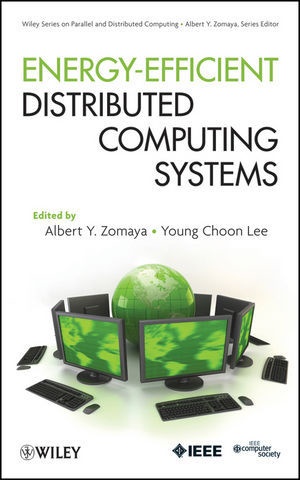En savoir plus
Informationen zum Autor ALBERT Y. ZOMAYA is the Chair Professor of High Performance Computing & Networking in the School of Information Technologies, The University of Sydney. He is a Fellow of the IEEE, the American Association for the Advancement of Science, and the Institution of Engineering and Technology, and a Distinguished Engineer of the ACM. He has authored seven books and some 400 articles in technical journals. YOUNG CHOON LEE, PhD, is with the Centre for Distributed and High Performance Computing, School of Information Technologies, The University of Sydney. Klappentext The energy consumption issue in distributed computing systems raises various monetary, environmental and system performance concerns. Electricity consumption in the US doubled from 2000 to 2005. From a financial and environmental standpoint, reducing the consumption of electricity is important, yet these reforms must not lead to performance degradation of the computing systems. These contradicting constraints create a suite of complex problems that need to be resolved in order to lead to 'greener' distributed computing systems. This book brings together a group of outstanding researchers that investigate the different facets of green and energy efficient distributed computing.Key features:* One of the first books of its kind* Features latest research findings on emerging topics by well-known scientists* Valuable research for grad students, postdocs, and researchers* Research will greatly feed into other technologies and application domains Zusammenfassung The energy consumption issue in distributed computing systems raises various monetary, environmental and system performance concerns. Electricity consumption in the US doubled from 2000 to 2005. Inhaltsverzeichnis PREFACE xxix ACKNOWLEDGMENTS xxxi CONTRIBUTORS xxxiii 1 POWER ALLOCATION AND TASK SCHEDULING ON MULTIPROCESSOR COMPUTERS WITH ENERGY AND TIME CONSTRAINTS 1 Keqin Li 1.1 Introduction 1 1.1.1 Energy Consumption 1 1.1.2 Power Reduction 2 1.1.3 Dynamic Power Management 3 1.1.4 Task Scheduling with Energy and Time Constraints 4 1.1.5 Chapter Outline 5 1.2 Preliminaries 5 1.2.1 Power Consumption Model 5 1.2.2 Problem Definitions 6 1.2.3 Task Models 7 1.2.4 Processor Models 8 1.2.5 Scheduling Models 9 1.2.6 Problem Decomposition 9 1.2.7 Types of Algorithms 10 1.3 Problem Analysis 10 1.3.1 Schedule Length Minimization 10 1.3.1.1 Uniprocessor computers 10 1.3.1.2 Multiprocessor computers 11 1.3.2 Energy Consumption Minimization 12 1.3.2.1 Uniprocessor computers 12 1.3.2.2 Multiprocessor computers 13 1.3.3 Strong NP-Hardness 14 1.3.4 Lower Bounds 14 1.3.5 Energy-Delay Trade-off 15 1.4 Pre-Power-Determination Algorithms 16 1.4.1 Overview 16 1.4.2 Performance Measures 17 1.4.3 Equal-Time Algorithms and Analysis 18 1.4.3.1 Schedule length minimization 18 1.4.3.2 Energy consumption minimization 19 1.4.4 Equal-Energy Algorithms and Analysis 19 1.4.4.1 Schedule length minimization 19 1.4.4.2 Energy consumption minimization 21 1.4.5 Equal-Speed Algorithms and Analysis 22 1.4.5.1 Schedule length minimization 22 1.4.5.2 Energy consumption minimization 23 1.4.6 Numerical Data 24 1.4.7 Simulation Results 25 1.5 Post-Power-Determination Algorithms 28 1.5.1 Overview 28 1.5.2 Analysis of List Scheduling Algorithms 29 1.5.2.1 Analysis of algorithm LS 29 1.5.2.2 Analysis of algorithm LRF 30 1.5.3 Application to Schedule Length Minimization 30 1.5.4 Application to Energy Consumption Minimization 31 1.5.5 Numerical Data 32 1.5.6 Simulation Results 32 1.6 Summary and Further Rese...

